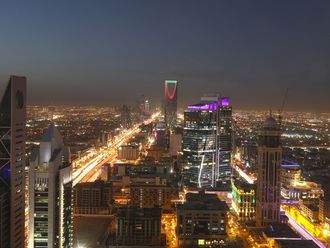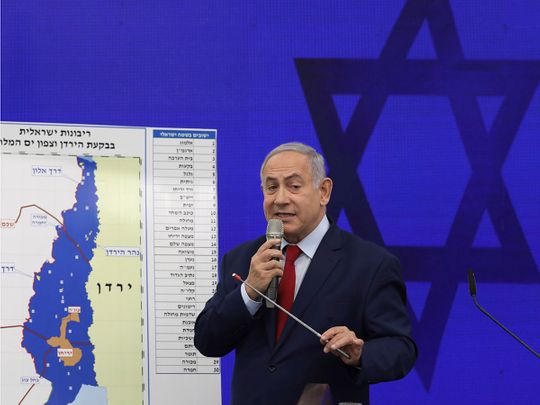
Dubai: On Tuesday, Israeli PM Benjamin Netanyahu pledged to apply Israeli sovereignty over the Jordan Valley and northern Dead Sea — if he is returned to office following a general election next week.
Netanyahu promised that he would move swiftly to annex nearly a third of the occupied West Bank if voters returned him to power in the election next week, seizing what he called a "historic opportunity" from a sympathetic White House to give Israel "secure, permanent borders."
Speaking at a news conference, Netanyahu asserted that along with the Golan Heights, the Jordan valley and northern Dead Sea are all "the eastern border of the State of Israel."
He addded: "This is the eastern defensive wall that guarantees that we will never again be a mere few miles wide," Netanyahu said.
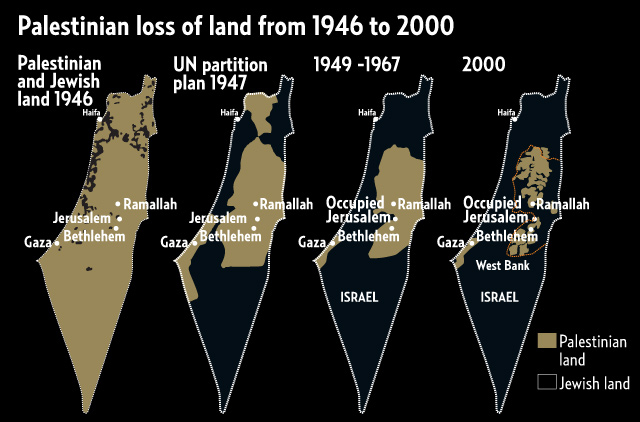
What area is Netanyahu referring to?
He was referring to how the Jordan River separates Jordan, to the east, from Israel and the West Bank.
The area Netanyahu was talking about covers the Jordan Valley and Northern Dead Sea bordering Jordan and is roughly a third of the West Bank's territory.
In practice, though, it would mean seizing land that’s vital to any future Palestinian state’s success. This would effectively dismantle the peace process.
What's the value of this area?
The area has enormous potential for agricultural and energy projects, among other uses. The Dead Sea draws tourists, and salt and minerals are mined there.
Palestinians see the Jordan Valley as their future breadbasket and Israel have been steadily uprooting Arab farmers and herders from the area.
The Jordan Valley runs along the east edge of the West Bank, the heavily Palestinian-populated area taken by Israel in the 1967 war, marking its boundary with neighboring Jordan.
It contains both Palestinian population centers, like the city of Jericho, and a number of Israeli settlements.
What is Netanyahu's annexation plan?
Netanyahu claimed in his speech that he would not be “annexing even one Palestinian.” To do that, he exempted Jericho and nearby Palestinian villages from the annexation proposal, opting instead to encircle them.
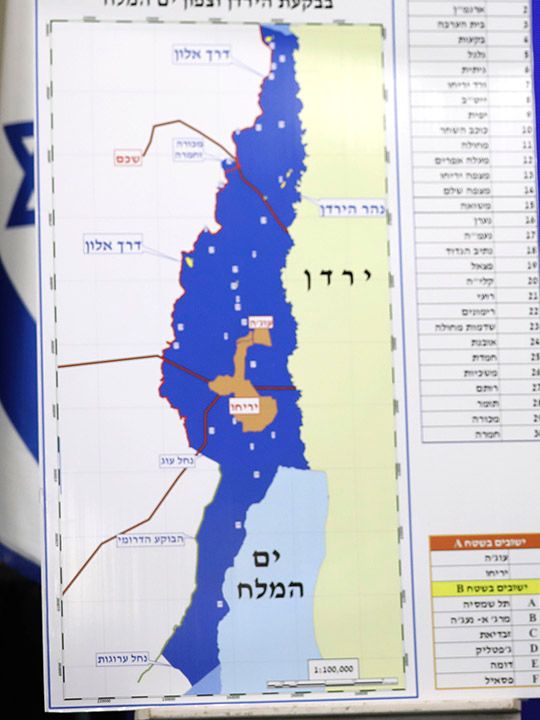
His plan to annex territory along the Jordan River would reshape the Israeli-Palestinian conflict and would reduce any future Palestinian state to an enclave encircled by Israel.
What happened in the past?
Israel occupied the West Bank from Jordan in the 1967 war.
It is considered occupied territory and Israeli settlements there to be illegal.
Nonetheless, about 200 settlements have been established in the West Bank and in East Jerusalem, which the Palestinians want as their capital under a two-state solution to the conflict.
Why are Israeli settlements problematic?
Palestinian leaders have always pointed that the settlements are among the major obstacles to any possible peace agreement with Israel.
According to B'Tselem, an Israeli human rights group, nearly 90 per cent of the Jordan Valley and the area around the northern Dead Sea has already been designated as part of what is known as Area C — meaning it is under full Israeli security and civil control.
How many Palestinians are in this area?
B'Tselem says Israel has restricted Palestinians from building or even entering much of the land. By its count, in 2016, there were about 65,000 Palestinians and 11,000 settlers living there, B'Tselem said.
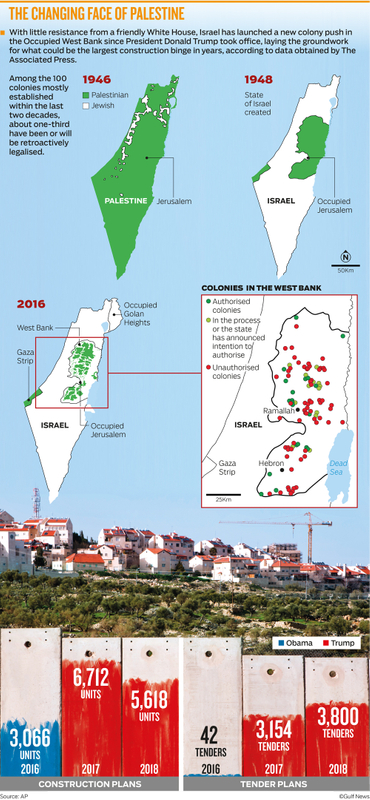
The areas not designated as Area C include the city of Jericho — one of the world's earliest settlements dating back to 9000 BCE — which would not be annexed under Netanyahu's proposal.
Jericho today is a Palestinian city in the West Bank.
It is located in the Jordan Valley, near Jordan River to the east and Jerusalem to the west. It is governed by the Palestinian National Authority
What is the US policy on this planned annexation?
The White House said in a statement that there was "no change in United States policy at this time" and confirmed that the administration's long-promised Middle East peace plan would be released after the election.
Daniel B. Shapiro, the former ambassador to Israel under President Barack Obama, warned that any celebration of a Trump recognition of Israeli sovereignty over the West Bank could be short-lived.
"A Democratic successor to Trump would certainly withdraw US recognition," he said.
What is the Palestinian reaction the plan?
Saeb Erekat, the longtime chief Palestinian negotiator, warned Tuesday night that if Netanyahu manages to put through his plan, he would have "succeeded in burying even any chance of peace between Palestinians and Israelis."
The Israeli, the international community must stop such madness. We need to end the conflict and not to keep it for another 100 years.
He added that unilateral annexation of occupied territory was a war crime.
"The Israeli, the international community must stop such madness," he said. "We need to end the conflict and not to keep it for another 100 years."
In a possible sign of Palestinian displeasure, rockets fired from Gaza later Tuesday night set off alarms in southern Israel, including in Ashdod, where Netanyahu was hustled offstage by bodyguards to take cover in the middle of a campaign speech.
Hanan Ashrawi, a senior official in the Palestine Liberation Organization (PLO), wrote on Twitter that the Israeli leader was out to impose a "greater Israel on all of historical Palestine and (carry) out an ethnic cleansing agenda".
Hanan Ashrawi told AFP that Netanyahu was "not only destroying the two-state solution, he is destroying all chances of peace."
Arab League's reaction: Netanyahu plan is 'aggression'
Arab foreign ministers condemned Netanyahu's plan. It considered any move to annex parts of the occupied West Bank as "aggression", undermining any chances of a peace settlement with the Palestinians.
The Arab League "considers his announcement a dangerous development and a new Israeli aggression by declaring the intention to violate the international law," Arab foreign ministers said in a statement after a meeting in Cairo.
"The league regards these statements as undermining the chances of any progress in the peace process and will torpedo all its foundations," the statement said.
Arab foreign ministers had been holding a meeting in Cairo, seat of the Arab League, but added an emergency session after Netanyahu made his comments on live TV.
Saudi Arabia's reaction: Netanyahu plan is ‘baseless’
Saudi Arabia condemned Israeli Prime Minister Benjamin Netanyahu's announcement, describing the measure as "baseless," state news agency SPA reported on early Wednesday, citing the Royal Court.
The Kingdom called for an emergency meeting of the Organization of Islamic Cooperation foreign ministers to discuss the move.
Saudi Arabia said it considered the declaration a "very dangerous escalation against the Palestinians" and said it "violated international law", adding that it "would undermine any efforts to achieve peace".
Turkey's reaction: Netanyahu's pledge is 'racist'
Turkey's Foreign Minister, Mevlut Cavusoglu, described the pledge as "racist" and criticised Mr Netanyahu for "giving all kind of illegal, unlawful and aggressive messages" before the election.







